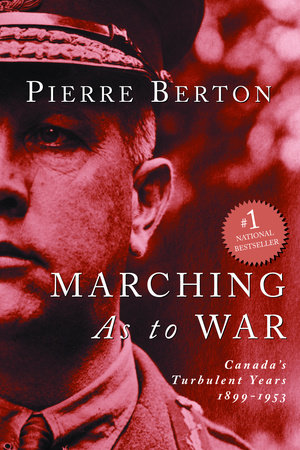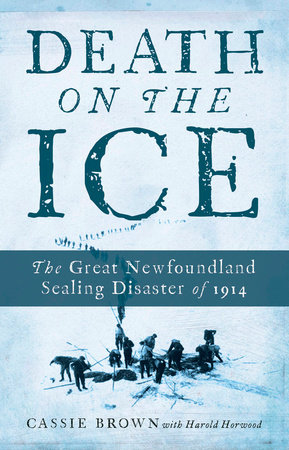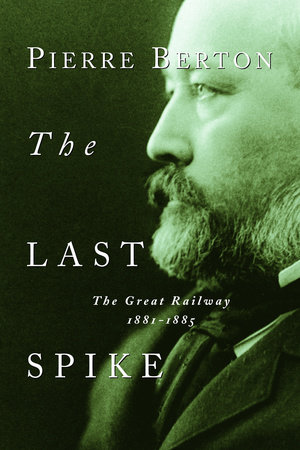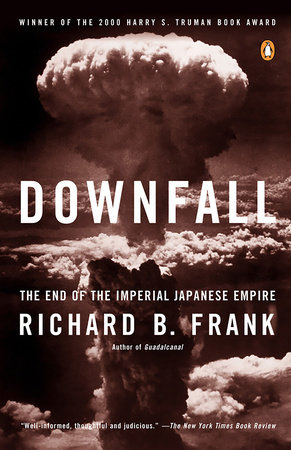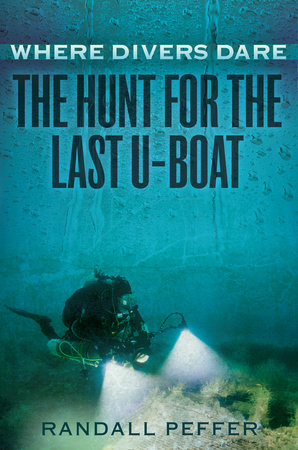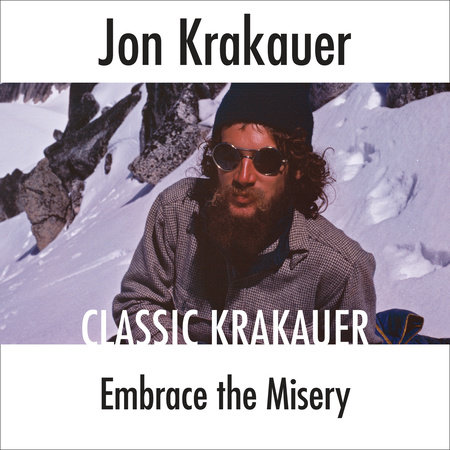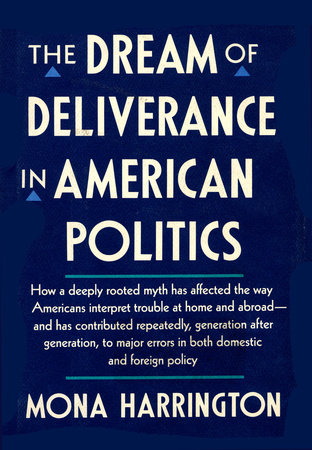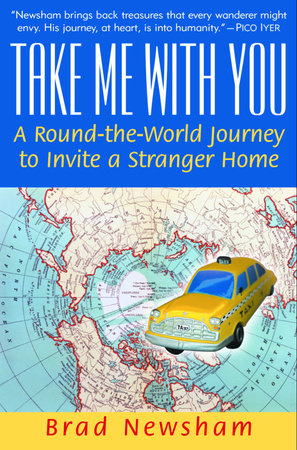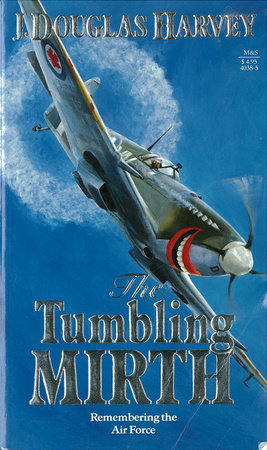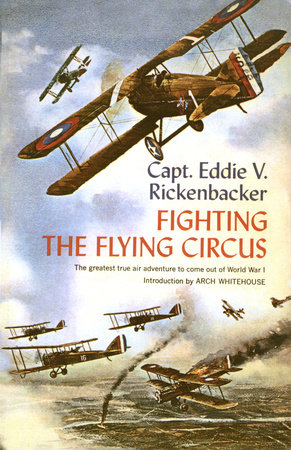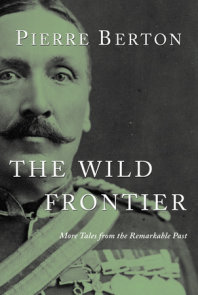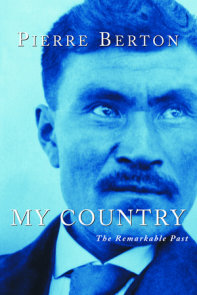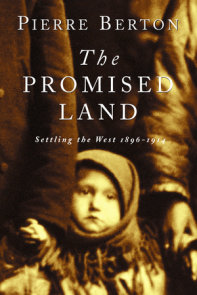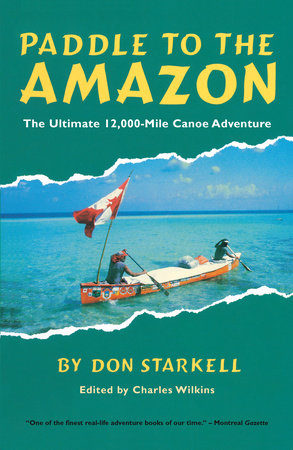Author Q&A
THE WAR ON HISTORY: an interview with Pierre Berton by Rudyard Griffiths
Q. Is nationalism on an upswing in Canada? And if so, what part does the popularizing of our history play in the renewal?
A. It’s not on an upswing at all. It’s fading away. The only encouraging thing I see is the renaissance of literature, especially the novel. That’s a good sign. You have to have a culture to have any sense of community and to have a culture, you must have novels, you must have books of all kinds, but especially novels. I’m delighted to see so many books being nominated for the Booker and other prizes. I think it’s extremely important to popularize history, but, of course, that’s what I do. The fact is, the Americans are very good at it and we haven’t been. We’ve been very good at academic history, we have very good scholars, but over the last 20 years we haven’t had much popular history being written, which uses a novelistic technique to some extent.
It’s storytelling we’re talking about. The Americans have done it very well because they have a movie industry. I’ve often said that the big mistake we’ve made with the National Film Board was to produce earnest documentaries to be shown in school basements rather than wide-screen epics that concentrated on the legends of the time. Legends are important. It’s one thing to be accurate in history, as I try to be, but legends are also important. Legends are not necessarily fictional — a legend may be true; we have a great many legendary figures in our past, larger than life. We have a great many legendary episodes, some of which are coming to life now. We have things like CBC’s Canada: A People’s History, or Pat Watson on History Television telling stories, which is what I used to do 30 years ago. I think there’s now, in the media, a readier acceptance of this kind of thing than there was, maybe because there are better storytellers.
Q. It seemed that for a while, through the ’60s and ’70s, the academics really had ownership of Canadian history, and often their perspective was one of critiquing criticism, that they wanted to pull apart the narrative, they wanted to reduce it to, some might say irrelevance, others might say to its essential components. Do you think the pendulum is starting to swing in the other direction? That Canadians are looking for narrative, they’re looking for stories?
A. At the end of Marching as to War, I say that for a long time there’s been a division between narrative stories and scholarly stories. The line is blurry because a good many of the scholarly stories are using techniques from the narrative stories and the narrative stories are trying to look at things from a point of accuracy. When I wrote The National Dream, the main criticism was that there was nothing new in it, but to me, everything was new and to the average reader, everything was new. What they were saying was that I wasn’t throwing myself into it to give my opinion of what happened then, which I didn’t do because the story was so new to me and to my readers that it didn’t require the kind of analysis that a scholarly story might give it. I’ve changed, myself, this new book now has a good deal of my personal attitudes, and so did The Great Depression to some extent. In those days we told a story because nobody knew it.
Q. Some people might say there’s a surge of Canadian patriotism at the beginning of the twenty-first century — we have the “I Am Canadian” ads, we have younger Canadians being more assertive about who they are and what they perceive about what we’ve accomplished as a nation. Do you think there’s something new happening with young people? Do you think they’re more interested in Canadian history and that they’re more open to the story, or are they just as cynical and critical as the last generation?
A. I don’t think average young Canadians give a damn about history. They are interested in pushing themselves forward and making money or a name for themselves. That’s always been true. We’ve had two periods of nationalism in our country. The first occurred in the early ’20s after the Great War, which was an enormous change when the Canadian Authors Association was formed and half a dozen new publications came out. They went a little too far, I mean, The Canadian Bookman never reviewed a book they didn’t like if it was Canadian. The fact that it was Canadian was considered the best thing in the world. It was followed, of course, by the decline of nationalism, because the Depression got in the way and everybody was too hungry to be nationalistic. The second period of nationalism began sometime after the Second World War. War has always been the catalyst. It began when some of us began writing popular history and people started getting interested again and we began going on TV and talking about history. Some of that is going on now, but it isn’t as fervent as it was because we were moving into the centennial year with Expo and the ’60s. The reason The National Dream was such a success was because of Expo.
Q. Wouldn’t you also say that after the war there was a conscious effort to sever the apron strings of Empire, to create Canadian identity that was distinct from Great Britain? In a similar way now, at the beginning of the twenty-first century, we are anxious about globalization, we are anxious about the degree to which our culture is being permeated largely by the cultural products of our southern neighbor. In a similar way, there’s a drive, there’s a catalyst for us as Canadians to do something that connects our individual identity today with a larger narrative, and history is one of the linchpins to that.
A. The move to sever the apron strings from the British Empire really began in 1911 when the west lost the election. The west wanted free trade, the east didn’t. That led to a feeling of nationalism, which was enhanced by the enormous success of the Canadian armies in World War I. That led to an independent seat in the League of Nations. By the ’30s we began to feel separate and identified ourselves as Canadians, not as British. When I went to school, we were all British.
Q. Right, part of the Commonwealth.
A. Well, it wasn’t even the Commonwealth. The Commonwealth wasn’t even used as a word even after it existed. They still talked about the Empire for a long time. That was killed by the Depression too. The Depression stopped everything dead, it stopped any movement of that kind. So there wasn’t a real nationalism until 1945, when Maclean’s magazine became a national publication rather than a derivative publication. That was the training ground for non-fiction writers, and I was a part of it. The whole idea, as Irwin said, was to “interpret Canada to Canadians.” He began to build up Canadian personalities, and that was before the rise of television.
Q. Do you think all this talk about globalization, about Canadians in some way losing their cultural sovereignty, do you think that’s a real phenomenon or is that just a perennial anxiety that we have as a small northern nation?
A. There is a very real anxiety. That won’t change, and certainly we’re moving into a global area. What will protect our identity is our culture. It will not be our economics or the fact that we have a lot of gold in the ground. But if we produce a distinctive culture, then we will remain an independent nation in that sense.
Q. At the Dominion Institute we’ve done these surveys over the last five years that show many Canadians really don’t know much about their history. We’ve asked questions on a lot of the things you write about, like Vimy Ridge in this new book Marching as to War, and it’s appalling that 33 per cent of high school graduates don’t know this material.
A. What do you expect when the fact is that the schools don’t teach it? There’s no history taught in the schools today. In my day, we had two kinds of history, British history and Canadian history. We had a lot of British history because we were part of the British Empire. But we also had a lot of Canadian history, and I loved it. I learned many French Canadian stories. When I went to high school and took four years of history, it began with the caveman and ended up in the early ’20s after World War I, but it moved progressively. As long as you stuck to it, you got history every week and it moved in a straight, narrative line. Now, all that’s gone and they’re mixing it up with social studies and all that. To hell with it. I think that history is history and it’s not all right to put a social fact on it. I’m not much for dates, but I do think that history is not being taught as an interesting subject. History teachers were pretty good. They told stories and we all loved it.
Q. Going back to what you were saying about the future of Canadian identity being based on culture, not economics and gold in the ground — when it comes to the teaching of history, at the Dominion Institute what we see is this myopia about giving kids the skills they need to get jobs. It seems the schools have lost their vision to produce responsible citizens.
A. Well when you have premiers like Harris, and all of them, all it is is a job, this is the “me” generation. There is something more than jobs. We have to have a sense of who we are, where we came from and where we’re going. Unless you know where you were born and what your childhood is like, you won’t know what your adult future will be like.
Q. Let’s get back to this question about the difference between Canada and the U.S. You said the Americans do a very good job at promoting their history. They understand it as story, they understand it as powerful material for entertainment. Why have we not learned that lesson from Tinseltown?
A. It’s not an easy lesson to learn. If you want to make a big-screen picture about Canada, who’s going to put it on? That’s why we had them in church basements, because that was the only place. We can’t get it into the American movie chains. Canadians themselves, especially the government people, have been particularly starry-eyed about Hollywood. We’re so hungry for American appreciation that we’ll do anything for it. The kinds of movies we should be making are great stories of the northwest and the Maritimes. Hollywood has done it, why haven’t we? I tried to sell my book to the CBC and they choose Dieppe instead. They prefer a book where we failed.
Q. Isn’t that an interesting point? It seems at times a cult of victimology exists when it comes to our history. Where is the seed for that self-flagellation where we take out the hair shirt and read our Canadian history books, as opposed to the Americans, who pick the victories and the high moments?
A. The leadership of the country cringes before the great American giant. I have a section in the book about the stereotypical Canadian after World War I, Jack Canuck, a guy with a cowboy hat, rolled-up sleeves, muscular, high boots and britches. He was the quintessential Canadian frontiersman. What happened to this stereotype? Where has he gone? The answer is Mackenzie King, his image, which was Canada’s image in many ways internationally for nearly 20 years, was that of a small, rotund little man standing between the two giants, Roosevelt and Churchill. That’s how he was photographed. I think that had a lot to do with our attitude.
Q. World War II veterans are an average of 80 years old now. Do you feel that we’re at the precipice of a crisis of remembrance in this country when it comes to understanding today? Or, is this just the way history works — does history have a lot of forgetfulness?
A. Well, I think so. It’s up to the writers and poets and others to do something. Timothy Findley has written a pretty good book called The Wars, which reminds us what World War I was like. When I grew up in the Yukon, it was all the British Empire, and war was seen as us saving the world from a Kaiser, which turned out to be a lie. There was none of this when war began again. I didn’t have any feeling of patriotism. The first group that joined a division joined because they were hungry. A lot of guys joined up for reasons of glamour, but I didn’t feel a sense of patriotism, I just wanted to keep on doing what I was doing. So I was drafted. You never heard a word about patriotism. It was nothing like WWI when mothers sent their boys off to be killed.
Q. You hear from some veterans that the reasons people fought were very different. It wasn’t about the patriotism, but it was about insuring that some kind of peace or order would emerge out of the chaos of the Second World War.
A. That was not the result of the war, that was the result of the Depression. They said, “we’re not going through this Depression again when the government treats us like lazy bastards.” The other thing, of course, was the nuclear bomb. It made war impossible on the scale that we knew before. General MacArthur’s plan was to drop 26 atomic bombs on selected points north of the border. This was taken seriously by America. Now, fortunately, they didn’t have them because MacArthur was fired and the war dragged on for three useless years. In Korea, they didn’t know what the war was about. Nobody told them what they were fighting for because it was an American Cold War idea, which we didn’t buy anyway.
Q. Do you think that the Depression had a greater impact on the shape of Canada in the latter half of the 20th century than the Second World War?
A. Yes, I do. After the war, we didn’t have the feeling of disillusion that ran through the country after WWI. You didn’t have books like Generals Die in Bed, you didn’t have that kind of memoir.
Q. It seems after the Second World War there was a renewed energy, people thought, “Let’s start building this country, let’s start moving forward.”
A. It was much more pragmatic after WWII.
Q. How do you feel about Canada’s role as a peacekeeper in the latter half of the 20th century?
A. Well, I think that’s what we should be doing. We need people in peacekeeping who know the history. I think if we’re going to be peacekeepers, we need professional ones, which means a professional peacekeeping army separate from the militia. People who are dedicated, who know the story and know how far they can go and how far they can’t go.
Q. Looking back over your career in journalism and as an author, being so involved in the telling of Canadian stories and reawakening Canadians’ interest in history, there is an upswing, I don’t quite understand the shape of it, but Canadians do have more time to reflect on their history. Do you think this is a long-term trend? Do you think Canadians will really embrace their past?
A. Not unless there’s a medium to do it. Obviously it will be television. The success of the CBC series, for example. The competition with American TV is tough, especially American sports.
Q. Are you pessimistic or optimistic? In fifty years from now, will Canada exist?
A. I think it will exist, and I think it’s the artists and writers and poets who are on the upswing who will make it exist. Change in the literary world is phenomenal. That’s really what our culture is about — you need to have storytellers.
